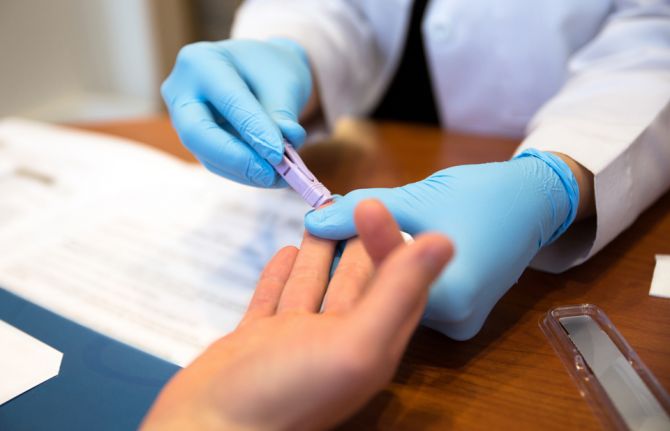

Feature Story
United Kingdom pledges to end HIV transmission in the country within 10 years
07 February 2019
07 February 2019 07 February 2019The United Kingdom of Great Britain and Northern Ireland has announced that it will end the transmission of HIV in the country within 10 years—an announcement that was warmly welcomed by UNAIDS.
In 2016, all United Nations Member States pledged to end AIDS by 2030 in the United Nations Political Declaration on Ending AIDS. This recommitment from the United Kingdom is welcome news that the country remains determined to achieve that goal.
The United Kingdom has dramatically stepped up its efforts to respond to HIV in recent years, resulting in a 28% decline in new HIV cases in the past two years alone. However, the government says it can do more.
The Secretary of State for Health and Social Care, Matt Hancock, launched the campaign, which is backed by an additional £600 000 from the Public Health England HIV Prevention Innovation Fund, at the AIDSfree Cities Global Forum in London on 30 January. The £600 000 will be used to support 14 volunteer organizations that are spearheading new approaches to HIV prevention and will focus on engaging at-risk or underserved communities.
Also at the event, the Secretary of State for International Development, Penny Mordaunt, made a bold declaration about the country’s commitment to ending AIDS globally. “While the world has made great strides in tackling HIV and AIDS, we need to step up our efforts,” she said. “We passionately believe we can create an AIDS-free future for the whole world. That’s the scale of our ambition.”
The United Kingdom Government has played a leading role in the global response to HIV since the start of the epidemic. It has invested £1.2 billion in the Global Fund to Fight AIDS, Tuberculosis and Malaria and is expanding access to antiretroviral therapy though UK Aid, a five-year, £150 million, programme set up to change the lives of more than 3 million of the world’s poorest people.
“This announcement is a further example of how committed the United Kingdom really is to ending AIDS. Not only in the United Kingdom, but around the world,” said Tim Martineau, Deputy Executive Director of UNAIDS, Programme, a.i. “UNAIDS has worked closely with the United Kingdom since 1996 and we look forward to continuing that partnership to ensure that every penny invested brings us one step closer to ending AIDS.”
The event in London was part of the AIDSfree Appeal, a campaign led by the Elton John AIDS Foundation and the London Evening Standard and Independent newspapers. The money raised from public donations through the appeal will be used to support Elton John AIDS Foundation projects in six key cities around the world—Atlanta, United States of America, Delhi, India, Kyiv, Ukraine, London, Maputo, Mozambique, and Nairobi, Kenya. Through UK Aid Match, the United Kingdom Government has pledged to double public donations up to £2 million, to be spent on projects in Maputo and Nairobi.
The AIDSfree Cities Global Forum welcomed leaders from the six cities, who spoke about their hopes for the future. The event was a prelude to the Fast-Track Cities Global Conference, taking place in London in September 2019, at which representatives of more than 275 Fast-Track cities will convene as the first global gathering of cities accelerating their work to end AIDS as a public health threat.
The Fast-Track cities initiative was launched by UNAIDS in 2014 in partnership with the City of Paris, the International Association of Providers of AIDS Care and UN-Habitat to provide support to cities to Fast-Track their HIV responses and end their AIDS epidemics by 2030.
London signed up to the Fast-Track cities initiative in 2018. New HIV infections in the city have fallen by more than 40% in recent years and London has surpassed the 90–90–90 targets—whereby 90% of people living with HIV know their HIV status, 90% of people who know their HIV-positive status are accessing treatment and 90% of people on treatment have suppressed viral loads—having already reached 95–98–97, a remarkable achievement.
“We are eager to take the lessons learned at the forum to a wider gathering of Fast-Track cities later this year in London that will take the measure of progress made and challenges still to be addressed,” said José M. Zuniga, President and Chief Executive Officer of the International Association of Providers of AIDS Care.
Region/country
Related
 U=U can help end HIV stigma and discrimination. Here’s how
U=U can help end HIV stigma and discrimination. Here’s how

27 February 2025


